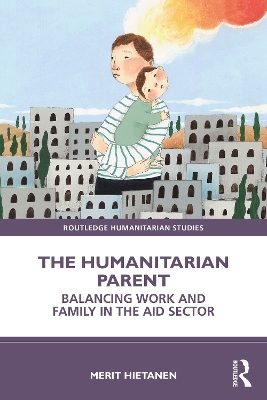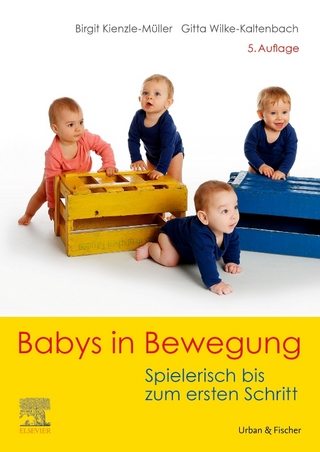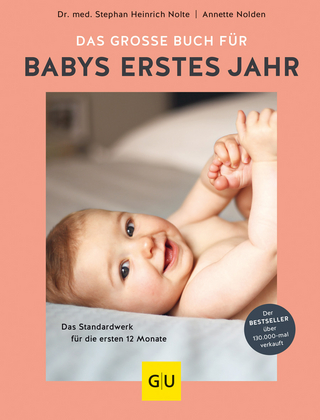
The Humanitarian Parent
Routledge (Verlag)
978-1-032-29439-1 (ISBN)
Aid sector staff work in some of the world’s most challenging environments, from conflict zones to sites of natural disaster and refugee camps. For a long time, the aid worker was typified by the lone white male, flying from place to place and seeing his family during the holidays. But now, as the world changes and the sector diversifies, how can family life be reconciled with the challenges and travel commitments of this particularly difficult career? This book delves deep into these challenges, exposing the problems that persist and pointing a path for organisations to adopt a more human-centred, staff-centred, parent-centred, feminist approach to humanitarian and development work.
Drawing on the author’s own experiences as an aid worker, as well as extensive original interviews and desk research, the book looks at the challenges faced by those who aspire to a family life, from finding a partner who is willing and able to live in the same location, to dating in difficult contexts, to being away from home and extended family, finding child care, and settling children in new countries and cultures. Local workers face their own challenges, often suffering from a lack of support in comparison to their international colleagues. For many, the cost is too great, and the sector suffers from a brain drain as experienced staff leave.
It doesn’t need to be this way. The book points a way for organisations to adopt policies that support mothers and fathers. As well as being a useful guide for aid professionals who are themselves navigating these issues, the book will be perfect for organisations looking to reform and for students wishing to understand the realities of a career in aid.
Merit Hietanen is a gender and protection expert with over ten years of experience in the humanitarian and development sectors, working for organisations such as UNRWA, UN Women, and the International Rescue Committee in Gaza, Jordan, cross-border Syria, Cameroon, and Myanmar. Most recently, she has been advising the Finnish Foreign Ministry on their co-chairpersonship of the Good Humanitarian Donorship Initiative. Merit has specialised in issues around women’s protection, gender equality, and gender-based violence and also has experience in humanitarian coordination, WASH programming and communications. Merit is passionate about humanitarian sector reform and finding local solutions to issues of gender equality, including in her home country, Finland, where she is the vice president of the Feminist Association Union.
Introduction
PART I
The humanitarian workplace and what it does to parents
1 The work culture in a humanitarian workplace
2 Why is change necessary and how do we get there?
PART II
For the ones thinking about having children
3 Making a decision about having children
4 Childless not by choice and how to get out of it
PART III
Life of a parent in the aid sector
5 Mothers who work on national contracts
6 LGBTQIA+ parents
7 Single mothers
8 Trailing spouses or unemployed aid workers
9 Fathers
10 The humanitarian nannies: the dependency of aid parents on domestic staff
PART IV
A sector in change: where do we go next?
11 What have policies given us?
12 Making humanitarian contexts more compatible with parenthood
13 Parental leave: where are we and where should we go?
14 Office hours and flexible working arrangements: what needs to change?
Epilogue
| Erscheinungsdatum | 15.11.2023 |
|---|---|
| Reihe/Serie | Routledge Humanitarian Studies |
| Zusatzinfo | 5 Line drawings, black and white; 5 Illustrations, black and white |
| Verlagsort | London |
| Sprache | englisch |
| Maße | 156 x 234 mm |
| Gewicht | 540 g |
| Themenwelt | Sachbuch/Ratgeber ► Gesundheit / Leben / Psychologie ► Familie / Erziehung |
| Sozialwissenschaften ► Pädagogik ► Sozialpädagogik | |
| Sozialwissenschaften ► Soziologie ► Gender Studies | |
| Sozialwissenschaften ► Soziologie ► Spezielle Soziologien | |
| ISBN-10 | 1-032-29439-6 / 1032294396 |
| ISBN-13 | 978-1-032-29439-1 / 9781032294391 |
| Zustand | Neuware |
| Informationen gemäß Produktsicherheitsverordnung (GPSR) | |
| Haben Sie eine Frage zum Produkt? |
aus dem Bereich


